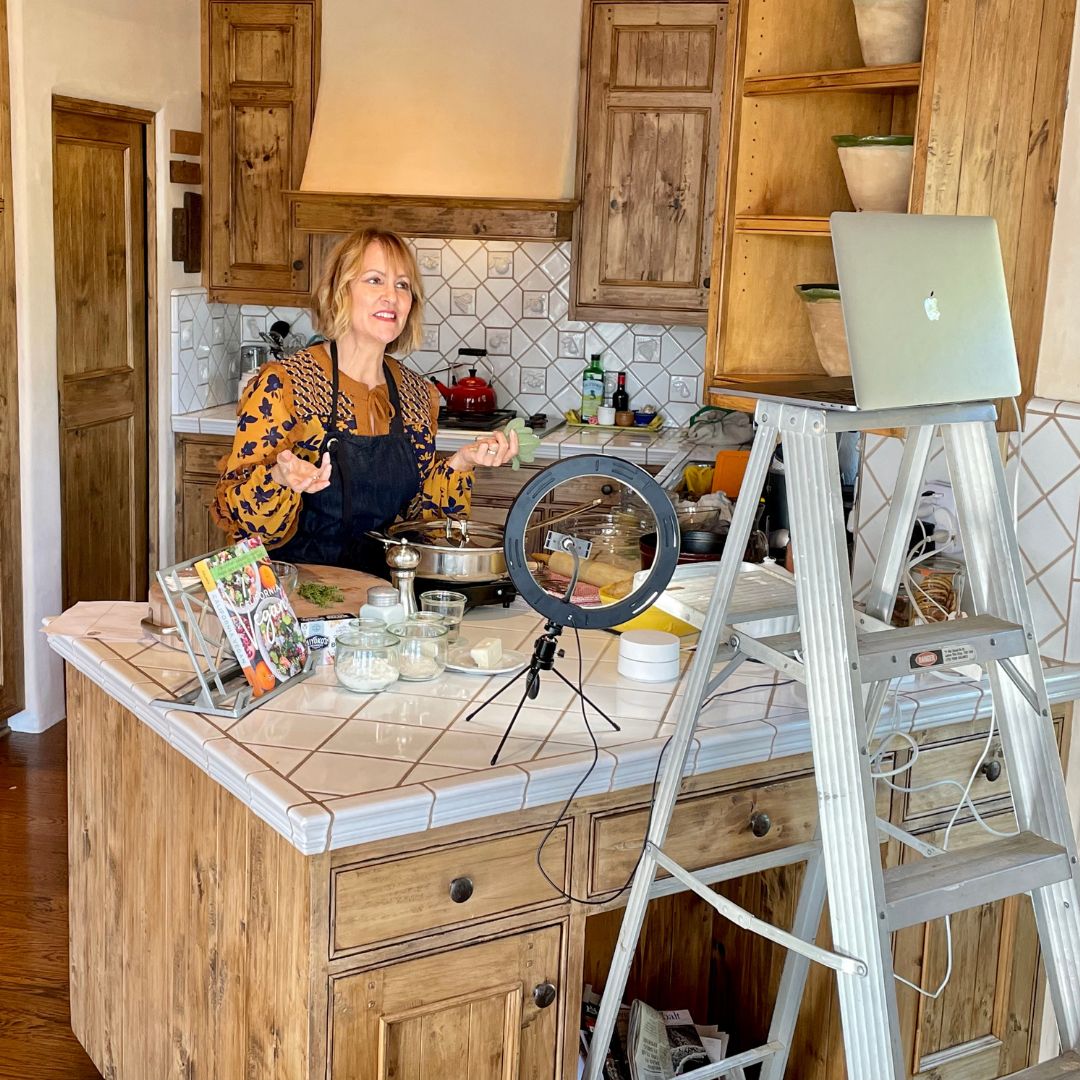
How do you spot misleading Tik Tok diet trends and risky nutrition advice on other social media platforms? Scroll through these tips on how to avoid nutrition misinformation on social media.
I love social media! That’s me pictured above doing a live event from my kitchen on my own social media channels. Yes, I’m on all the major platforms, including Instagram, Facebook, Tik Tok, X, YouTube, Threads, and Pinterest, dishing out my own nutrition advice, from how to cook up healthy plant-based recipes to the latest nutrition science on eating for optimal health. A lot of my respected registered dietitian colleagues are doing the same thing on social media; we’re trying to make a difference by connecting with our communities every day in order to help them live healthier lives in a harmonious way, free from bad nutrition trends and diet shame.
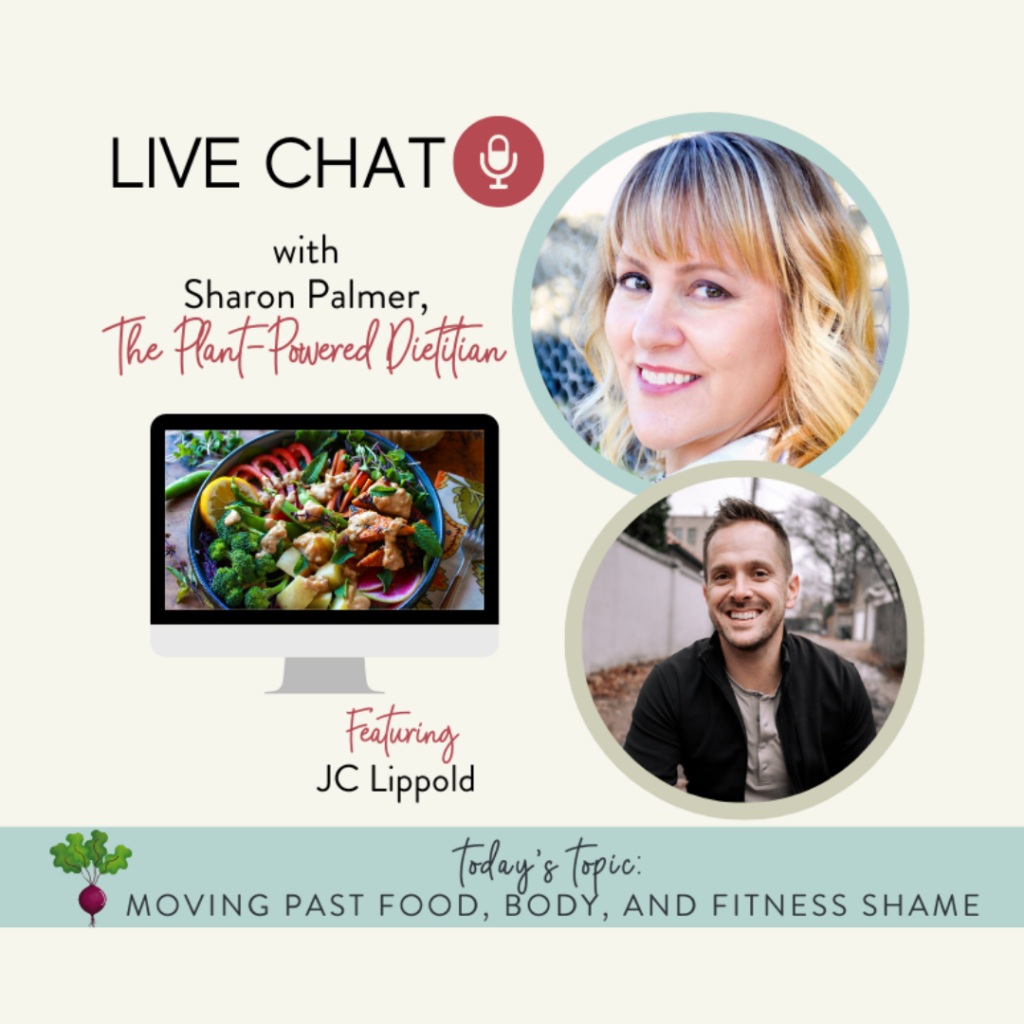
Social media can be wonderful. It’s a place where trends like music, fashion, and food take off and collect followers by the millions at lightning speed. Beyond entertainment, it’s also a platform where meaningful and helpful information on important topics like nutrition is shared by numerous health experts. But sadly, hashtag trends don’t always intersect with truth, and nutrition hype spreads and often goes viral. I worry about this every day, as I scroll through my feed and see numerous posts that offer erroneous, shaming, and downright dangerous advice to millions of people. Anybody can tag their posts (#nutrition, #diet, #loseweight) with bad nutrition advice and a lot of unqualified influencers do just that. While it can be harmless, like how to do avocado toast, meal prep, or mocktails, it can also be misleading, unhealthy, and even risky, like a celery juice “detox” and gut health “hacks” like using shots of olive oil and green powders as laxatives to lose weight—promoted all too often by small-bodied influencers feeding into diet culture and body stereotypes.
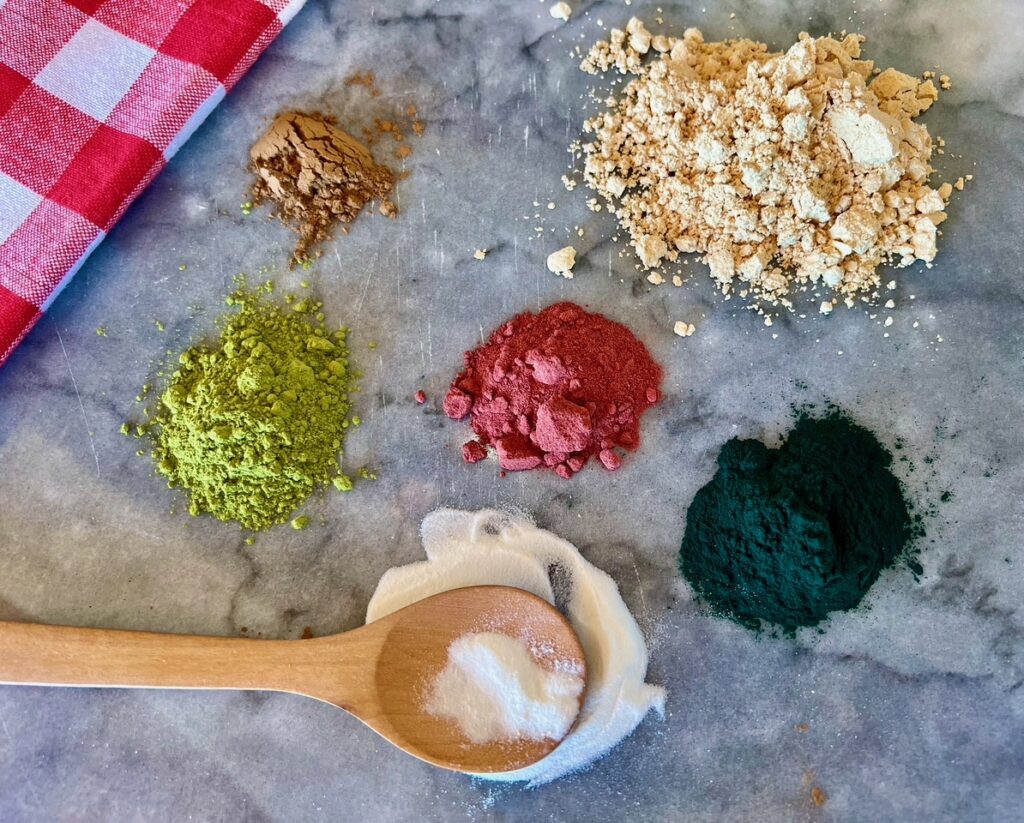
Fortunately, an army of real nutrition experts are out there combating nutrition misinformation with science-based facts, taking credibility away from dangerous diet advice, while sharing the joys of delicious shifts to healthy eating. Sifting through the vast nutrition space can be dizzying! Sometimes it may seem like an easy call—do we really believe a celebrity’s fit and toned body is due to eating or drinking a particular product (which likely pays for their endorsement)? Millions of followers do, though. It’s not always so simple to determine truth in a sea of diet trends.

What can you do? Rely on qualified resources and advice to help navigate the murky social media waters of nutrition. Learn how to understand and make sense of nutrition science, which can be very complicated stuff. You can also learn how to determine which diets are fads, and identify useful, commonsense nutrition to support eating a healthy, delicious, approachable plant-based diet. Remember, you don’t have to make dramatic, punishing changes to your diet for optimal health—eating is love, life, culture, and enjoyment! Try these stealth health tips for small changes that can add up to big results.

Top 5 Tips to Determine Nutrition Truth or Trend Online
Here are my top tips on how you can sift through the posts on your phone to find meaningful, reliable nutrition information.
#1: Question the Source
Registered Dietitian Nutritionists (RDNs) are experts with the education and experience that qualifies them to share research-backed information. Don’t be fooled by the term “nutritionist”, which essentially may have no meaning in terms of advanced educational degrees. Learn more about what dietitians really do here.
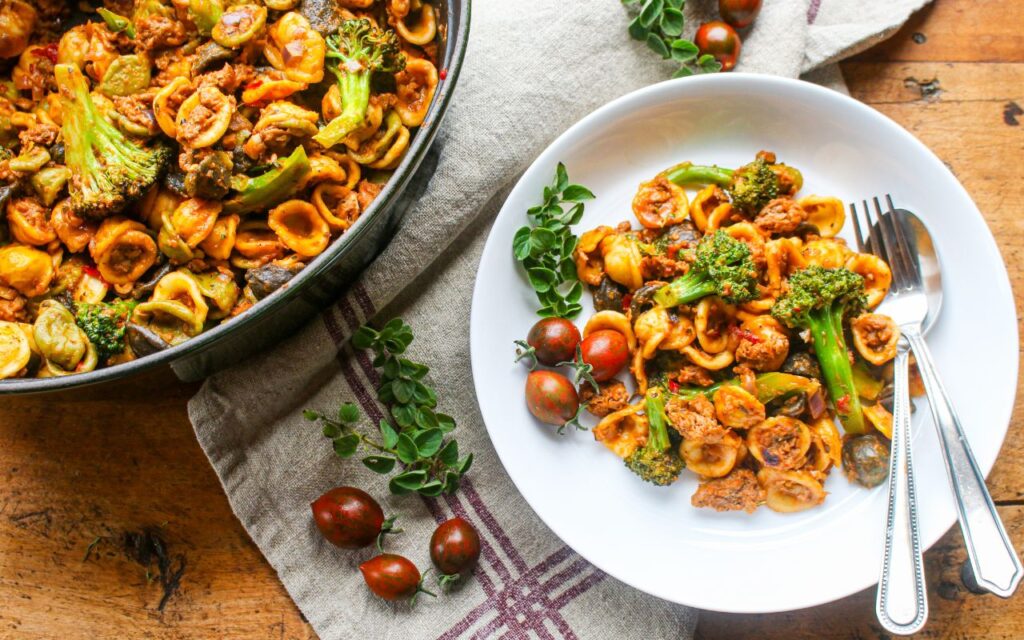
#2: Avoid “Toxic” Food Claims
Demonizing particular foods, like seed oils, sugar, or carbohydrates, as toxic is a red flag. Ruling these foods “bad” may not be based on scientific rational. Healthy eating is the result of overall dietary choices, with a focus on eating a variety of healthful foods without becoming overly obsessed with perfect eating. That’s right! You can enjoy traditional foods, such as rice, tortillas, and pasta, that are labeled “bad” on social media, and even enjoy a treat now and again without feeling shame.

#3: Don’t Trust “Miracle” Foods
Whether the trend is to eat more protein, drink a gallon of water a day, or take a tablespoon of apple cider vinegar each day, none of these will bring about instant or effortless results of muscle gain, weight loss, or other false promise.
#4: Skip Reality Nutrition
Social media is overrun with celebrity and other (what society deems) attractive influencers who collect followers as they post themselves in bite-sized reality-style posts. A lot of these posts, like #WhatIEatInADay, showcase what they eat and drink. Eating what they eat will not make any of us look like them, nor will it make us instantly healthier. And do you even know if they are really eating these foods?
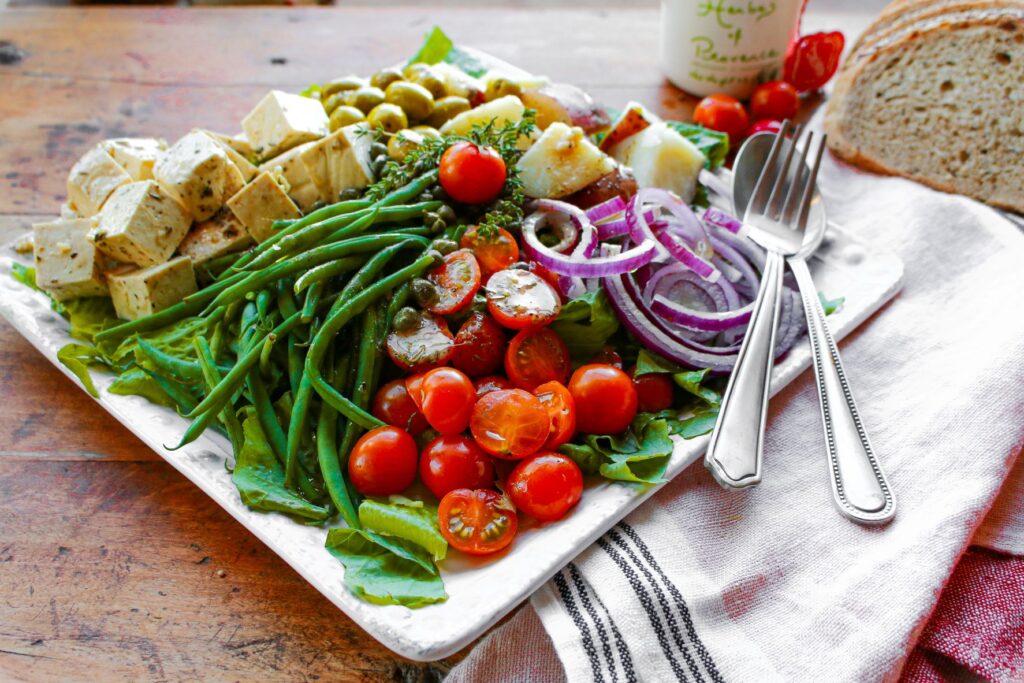
#5: Too Good to Be True?
Dismiss anything that seems too good to be true. It most likely is. Can lettuce water improve your sleep? How about taking chlorophyl liquid drips for weight loss? I’ll pass!
For other tips from registered dietitians on healthy eating, check out the following:
More Tools for Eating and Living the Goodness
